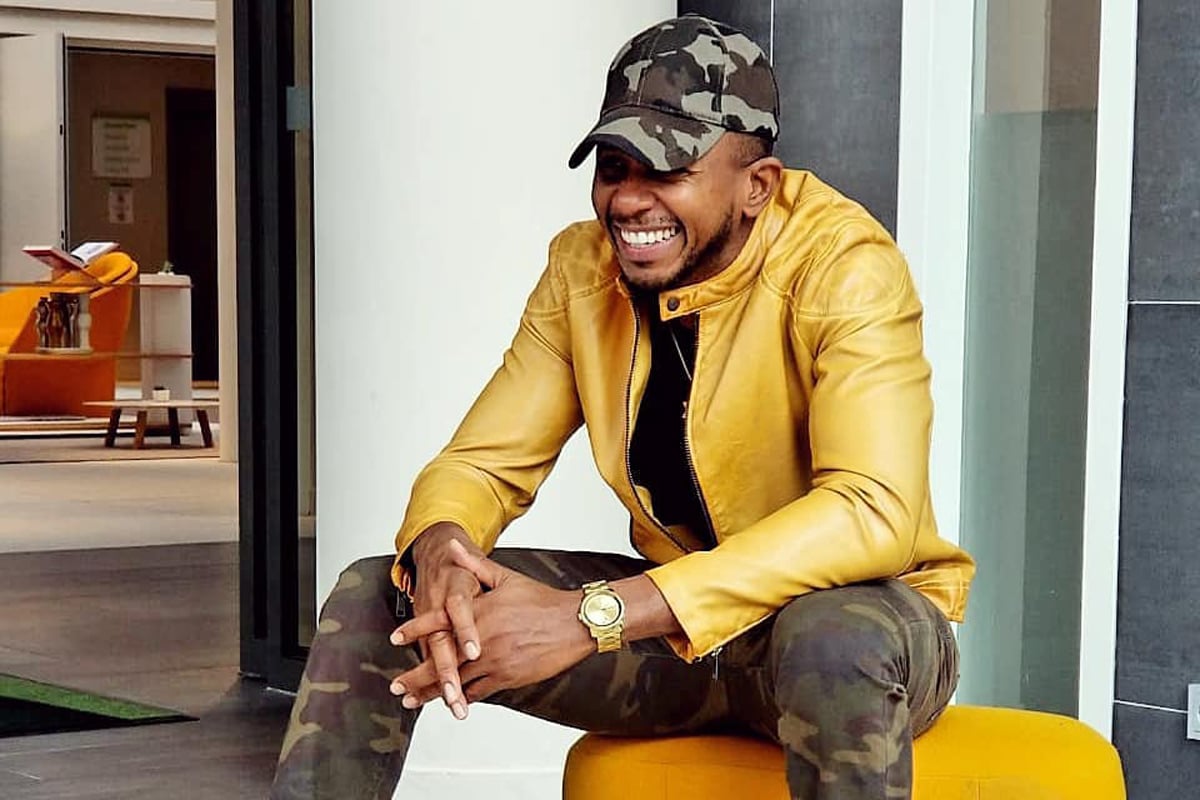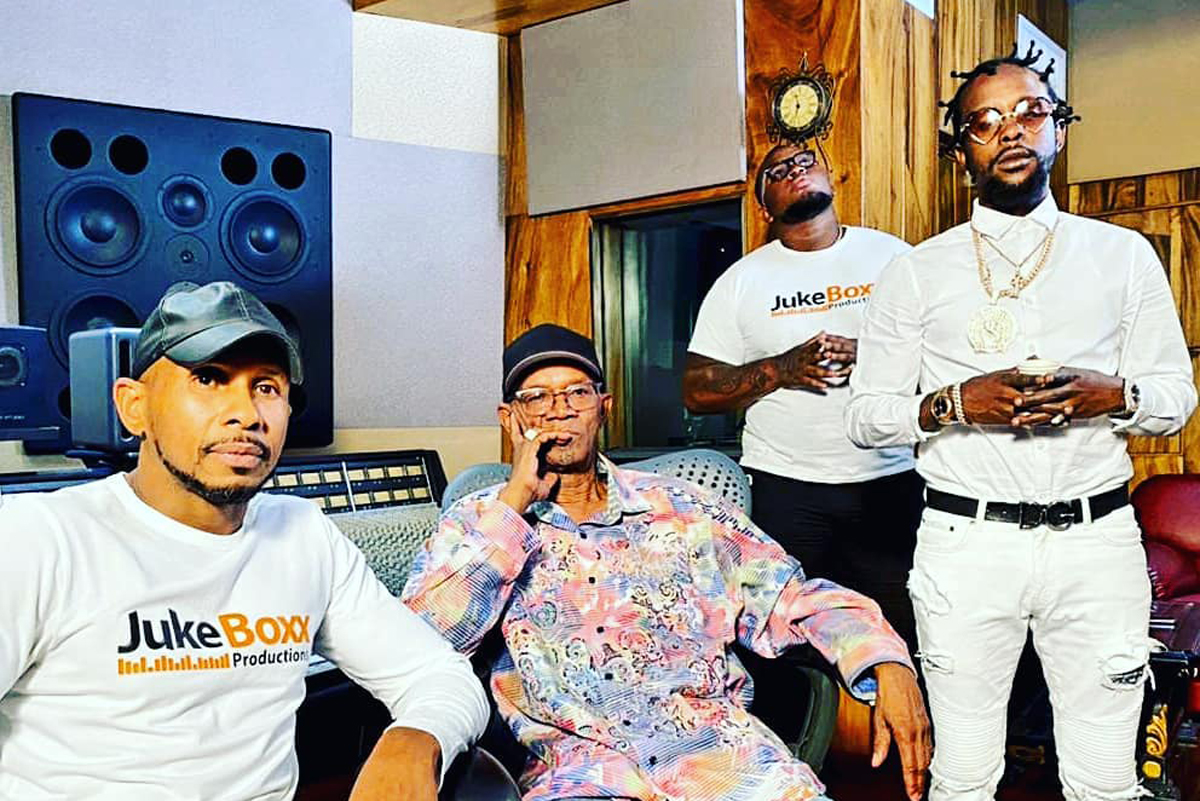Shane Brown Mixing The Hits

Shane Brown is one of the most in-demand engineers in Reggae and Dancehall music. He comes from a long legacy of musicians and has been in the business for over two decades producing and engineering for Shabba Ranks, Ritchie Spice, and Tarrus Riley. He produced Riley’s latest album Healing which was totally recorded during the pandemic. Most recently, he produced God is Love by Beres Hammond and Popcaan.
In this interview, we talk about his journey to become a notable music engineer at the heart of some of the genre’s major hits.
How are you doing Shane?
I am great, I am home working. I am always home, they say to quarantine and I was always quarantining anyway.
You seem very healthy, what is your daily routine?
I wake up at 5:00 am, go to the gym, feed my dogs, take care of my fish, then get ready and come downstairs to the studio to work, then back to bed.
Creative people always love animals.
A dog is a man’s best friend. A dog don’t business if you are rich. He is right there for you. I have big dogs.
What’s your spiritual center?
I believe that nothing I am given is guaranteed. Everything is a favor. My surroundings are a favor, to come down and make music is a favor. I don’t say I deserve this favor or say I work for this favor so therefore I am very spiritual and thankful.
Is that where your music comes from?
My music comes from passion. Growing up they always had to play music for me. I had a passion for music but then my talent is the blessing and that’s where spirituality comes in because I am not better than anyone else.
How did you get into music professionally?
My family was into music from the 60s. My Grandmother’s brother is Duke Reid. He had the first sound system and the first record label in Jamaica. That’s where the family business started, he was a retired policeman and had a liquor hardware and a studio upstairs. My Grandmother asked her brother to give her son Errol, who is my dad a job.
He had a special relationship with Marcia Griffiths. When Duke Reid died Marcia said Errol let me carry you to Hope Road and from 1978 till Bob died he was Bob Marley’s engineer. I was discouraged by my family from coming into music. My dad always said go to school and I couldn’t get into music but I used to play a sound system “Santana International”. My sound had PanHead, Super-Cat, Frankie Paul, Quench Aid, Major Mackerel, and Tumpa Lion, they were all on my sound.
Sound system was how people started back in the days?
I just knew I had to be involved in music somehow.
When you started to work with your father how was that experience?
I am going to be very honest, it was Tuff Gong Studio in 1993 but my dad wasn’t there. He was touring with Ziggy Marley. Clive Hunt etc. was there and I was there as an apprentice learning and getting in everything I could. It was the happiest time of my life learning. It was Chow who had a liking for me and taught me everything. Chow trained my ears using an oscillator. To this day I have perfect pitch. He used that and tuned my ears in the studio.
What was the first major project you worked on?
The first major song I worked on was Ritchie Spice’s Grooving . I recorded that song for Island Records and nobody wanted me to mix. At the end of the session Clive Unit told me to run off a balance of the song and Fedex it to Chris Blackwell. In those days you had to FedEx and keep a copy. We sent off the copy to London to Chris Blackwell and days later Chris Blackwell called to say “I love the mix”. Clive said “the song don’t mix”, and Chris is saying, “what you mean I love it”. Only one problem: you didn’t do a version. Clive said “it’s Errol little son I asked to do a balance” and Chris Blackwell said “That is the mix”. From that day the rest is history I have been mixing away.
On the Creation Riddim there is a crisp ingredient, same thing I got from listening to Tarrus Riley’s last album Healing that you produced, how do you know when the mix is good verses when it need some more touch up?
Every time I mix a song I am nervous. It all starts there with praying I don’t mess up the people’s song. I created a sound in my studio. I also mixed a lot of songs off Buju’s (last) album in my studio. I know the perfect mix when I can see through the mix. The mix is just so transparent, crystal clear like water. Music is a lot of different instruments so nobody can be fighting; they just have to be in their own space.
When you are mixing you think of the charts?
When I am mixing I more listen to Hip Hop and overseas music more than local music because sometimes we don’t get the right mastering locally. Local music does not get the right mastering sometimes. There are some local mixes I can listen to but I try to lift the standard of our music. I don’t think the quality should be different. I mix for many international artists too so it’s just my standard where I want to go when I am mixing and I am my biggest critic.
Your company JukeBoxx?
Yes, I want (it to be) a full service company where I want to record, distribute music, mix, manage the artists and artists development.

How do you think you can help as a producer, artists to hit the Billboard charts?
Jamaicans are ambitious and we want to reach the highest peak but are we ready? Sometimes we are not ready because the quality is not there. Second (some of) the artists are not prepared; they are raw talent but no artist development. I toured with Shaggy for ten years and one of the things I admired about Robert Livingston is artist development. Makes no sense carrying an artist to the highest peak and no one can understand him. A lot of things come together for international success and artists are at times blindsided by Jamaica. Check the people who are successful. It’s always the more prepared people who are humble and have a good team around them.
Do you think artists should focus on owning their masters rather than just perform a song?
But artists are not the producers. Licensing of masters has a lot to do with publishing and a lot of these opportunities come from publishing houses. It’s a way, if the artist has the right publishing set up, then the publisher is going to work to get the opportunity for the artist. Jamaican culture don’t like to sign and don’t like commitment.
What do you think about Jamaica’s music now?
We want more opportunities and we want more ears. We want to make ourselves more marketable. We are as good as any other music but we want to be more marketable. Sean Paul, Shaggy who are successful make sing along hooks. That’s why it’s called a hook. People need to understand the hook or chorus. Bam Bam not even saying anything but the melody is so catchy. If the people can’t catch on or hold on to anything you singing then what are you singing to? A lot of Caribbean people caught up in their home country. Jamaica is the hypest people but it don’t make sense to be hot a yard and nobody knows us abroad. We got to make songs for the world. People looking to Jamaica for the Jamaican sound like the Diwali Riddim, that’s dancehall music but it break international. We have to bridge the gap between our culture and the world. The world needs to be able to understand even a little part of what we are saying. Give ourselves an opportunity, we need to know our direction and where we are going.
Shane Big Up
Thank You For Your Time JR
